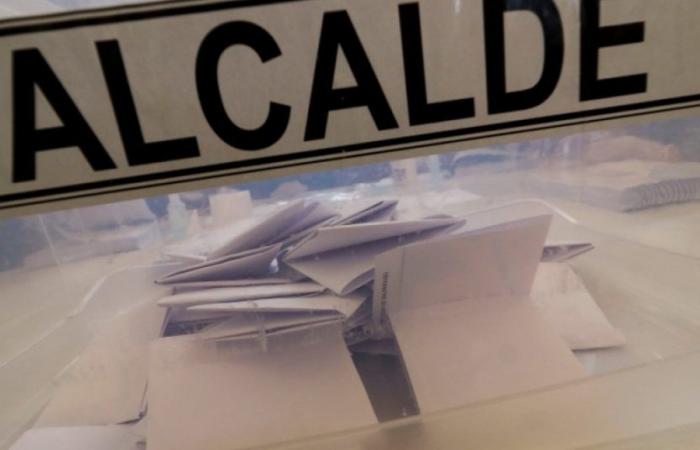
Negotiations on the right are at their most intense point ahead of the mayoral and gubernatorial elections, with the opposition still having to decide which candidates to put forward on a single list that can stand up to the already announced unity of the left.
This Wednesday, at a meeting in the headquarters of National Renewal (R.N.), the main leaders of Chile Let’s go tryRon resolve the complications that they face in the face of the elections municipal and governors, not only in the face of the already announced unity of the left, but also by the internal friction that exist in the opposition coalition parties and with other sectors of the right, such as Republicans.
These conversations failed to reach a conclusion, so the negotiations to define candidates were extended until Thursday, June 27, a day on which there was also no consensus, so the conversations will continue until the differences that have so far prevented an agreement from being announced are settled.
However, even though everyone appears optimistic in front of the media, the truth is that the difficulties still keep the sector, which seems more challenged to reach an agreement than the government, in tension.
In fact, The announcement of María José Hoffman (UDI) as a candidate for the Governorship of Valparaíso on the part of the opposition, instead of former deputy Luis Pardo, caused discomfort among militants of RN, who internally spoke out against this decision. Along these lines, Ruggero Cozzi resigned from the vice presidency of the store, and therefore from the political committee, while the former president of the party, Francisco Chahuán, also criticized that definition.
“The important thing is not to look at a particular mayor’s office or governorship. Party leaders have the obligation to look at the collective project, which has social meaning. That is what we try to look at when defining who we think are the best candidates,” responded the current president of RN, Rodrigo Galilea, in response to the anger among party members over the situation in the Valparaíso Region.
For his part, his UDI counterpart, Javier Macaya, also put cold cloths. “Just as in the Valparaíso Region RN had to give in, in many other places we are going to have to give in.is part of the negotiation,” the union representative promised.
Differences transcend Chile Vamos
However, the complications are not only present within Chile Vamos, but also affect relations with the Republican Party (REP), which has already announced a series of candidates for the upcoming elections.
“We said a long time ago that these are our cards, we show them. First they told us: ‘we have an agreement in 180 communes, we don’t know which ones they are’. Today They tell us: ‘we have an agreement in 280 communes’, we don’t know which ones either. So I think we have to make the mistake and Republicans are making the mistake and we will get to the ballot with good candidates,” said the presidential candidate of the extreme right, Jose Antonio Kast.
For the analyst politician and academic at the University of Valparaíso, Guillermo Holzmannmany studies suggest that the next elections will define who has the greatest capacity to channel citizen support, but that would be insufficient considering mandatory voting and the number of people who will vote for the first time.
“The most relevant factor is credibility of those who are supporting the candidates. To the extent that the left, the ruling party, appears more credible in terms of support, it will have a better chance of channeling the undecided voter from this obligatory vote. The same thing happens with the right: the unit is not credible or the ideas they are putting forward do not have credibility. The candidates, regardless of their personal qualifications, will not be able to channel the citizen vote to be able to have a place in the elections,” the expert said.
The analyst also suggests that the Communist Party (PC) and REP, due to their coherence, will be the most benefited by the fragmentation of the rest. “There is an institutional crisis here that has not been overcome and that is trying to be addressed by an electoral political process, but the credibility and coherence of their approaches become fundamental,” he said.
Asked about the division within the opposition, Holzman says that “all the games In general, the center right and the UDI in particular, They tend to explain the present with ideas from the past and they fail to empathize with the needs of the present in light of the demands of the future. The ideology or the ideological proposal falls short. And that is where the power vacuum of the UDI occurs, and the fragmentation within RN, which is still revolving around elements or positions that are not those that interest the citizen who will define the election today.”
“The hard vote is not enough to be able to win electorally. They need not even the undecided vote, but the pragmatic vote of a citizenry that wants answers, and that answer is hope for the future,” he maintains.
Photo: Agency One





